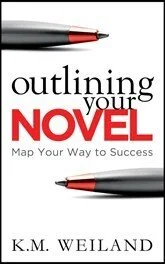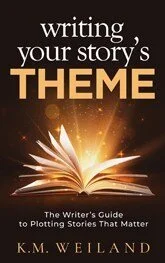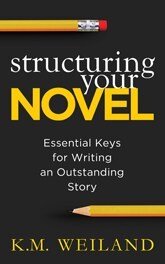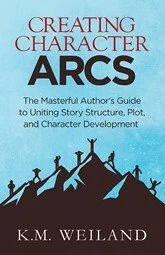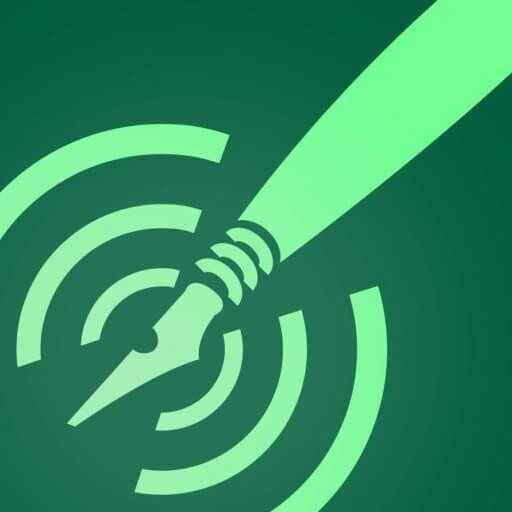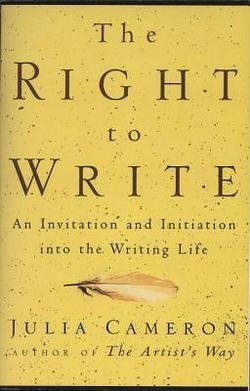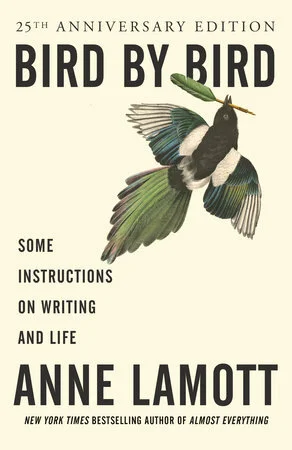Nine writing resources that made my novel possible
Writing a book is hard, but you don’t have to do it alone. There are thousands of resources to help ease the burden of writing something as unwieldy as a novel.
This article is about the books, podcasts, websites and videos that helped me most on my journey to writing my first novel. They’re presented in order of most helpful to least.
K.M. Weiland website and books
K.M. Weiland maintains a website called Helping Writers Become Authors, and it might be the single most helpful resource I found on my journey to writing a novel.
Helping Writers Become Authors creates a sales funnel leading to Weiland’s excellent books about the craft of writing, but she gives an awful lot away for free.
In particular, I found her blog series on story structure and character arcs so helpful I used them to build checklists that gave me a clear sense of what my scenes and characters needed to accomplish to support the overall story.
Not everyone will enjoy Weiland’s fairly structured approach, but I’ve now read dozens of books about writing and am confident her teaching made the biggest difference for me so far.
Go to Weiland’s website here or use the following links to see her books on Amazon:
Writing Excuses podcast
Writing Excuses is produced weekly and consists of short, sharp, relevant discussions about writing among a core group of four veteran authors—who are often joined by additional authors or industry professionals.
Topics cover the gamut of the writing process and include episodes that dig deep on craft, process, industry, marketing, branding and more. It’s relevant material for authors and aspiring authors alike, and there are 15 seasons worth of archives to keep your gears grinding.
The podcast’s magic lies in the diverse experiences and perspectives of its four core hosts. Keep a notebook handy because when you find a pertinent episode, you’ll be pushing pause and rewind to jot things down.
Click here to go to the Writing Excuses website, and otherwise look for it on your favorite podcast app.
Ellen Brock, novel editor
There’s simple utility to Ellen Brock’s Youtube channel about writing. A professional novel editor since 2011, Brock shares her deep knowledge about character, plot, scene, editing, outlining and more in a format that’s short, to-the-point and effective.
When I realized my early draft was sick and needed time in the operating room, Brock was the first teacher who showed me how to diagnose and repair its biggest ailments.
Her more than 80 videos generally range from five to 15 minutes, and she’s very good at explaining how stories--as well as the writing industry--work. I’ve perused dozens of Youtube channels about writing, and Brock’s stands out as most useful by a wide margin.
She doesn’t try to sell you with slick video editing or branding, but simply shares her obvious expertise in relatable ways. The end result should be that she has more clients, and the world has more capable writers.
Click here to visit Ellen Brock’s Youtube channel.
The Right to Write, Julia Cameron
It’s been 15 years since I started thinking seriously about creative writing, and Julia Cameron’s The Right to Write helped make that happen.
The Right to Write is an inspiring book that leans into the spiritual side of writing using elegant prose that makes you want to scrawl at a page with a pen or pencil.
Before reading The Right to Write, I worked as a newspaper reporter and focused entirely on telling other people’s stories as well and honestly as I could. Before reading The Right to Write, I’d never turned that lens on myself.
Using excepts from The Right to Write as prompts, I leaned into my own story using creative writing to unearth old wounds that needed attention. It was unexpected and not entirely pleasant, but there’s no question it expanded my writing abilities and simultaneously helped me sort things out.
Cameron’s spiritual approach to writing is in many ways the opposite of K.M. Weiland’s architectural approach. Both work, and it’s likely that striking a balance will ultimately work for most writers.
Provoking Success, Brett Denton
Provoking Success is a short book with 25 insightful digests that inspired me to work harder and smarter.
The author, Brett Denton, also happens to be my fitness coach of nearly a decade, so I’ve been exposed to his philosophies about hard work, self-awareness and forming good habits in a variety of ways.
Provoking Success capture’s Denton’s can-do, hard-work sensibilities with aplomb, but he’s also skilled at using everyday anecdotes to offer unique insights to personal growth. The tips he offers are often surprisingly relatable.
Denton isn’t writing about writing, but the work ethic he espouses applies. You want to write a novel? It’s going to require hard work and discipline, and Provoking Success can help you get there.
Echoing Silence: on the Vocation of Writing, Thomas Merton
Echoing Silence is one of the best meditations on the spiritual and emotional sides of writing I know of. It’s is a collection of essays and excerpts that afford incredible insights into life, living, mindfulness, consciousness, intention and writing.
I read Echoing Silence early in my creative writing quest and found Merton’s prose and deep thoughts so immersive that I compiled a binder of favorite quotes and emulated entire scenes when I scribbled in journals.
Merton doesn’t show you how to punctuate, write a sentence or tell a story, but he helps you tap into your creative ethos in a way that inspires you to write.
Bird by Bird, Anne Lamott
Anne Lamott’s Bird by Bird is one of the most popular book about writing on the market today. It’s a New York Times bestseller and well vetted by readers and reviewers.
She writes with clarity and honesty about the joys and challenges of the writing life, parenting, addiction and faith. It is, in short, a writing-focused memoir.
Bird by Bird is not a prescriptive book about writing, and readers looking for clear tips about plot points, hooks, points of view, voice or dialogue should look elsewhere.
If you’re looking for a well-written, witty memoir about the writing life, interspersed with relevant writing tips, add this to your short list.
On Writing, Stephen King
On Writing is one part memoir, another part instruction. Stephen King is somewhat unorthodox on both counts.
The memoir part offers an interesting view into King’s formative years as a writer, but it’s not writing advice.
The how-to part offers standard advice on writing, discipline and craft, but King is what writers call a “pantser,” a seat-of-the-pants writer who doesn’t plot or outline his stories. This makes his writing advice unique in a field of books that often focus on plot and structure as solutions to writing gridlock.
Penned by one of the most prolific and successful authors of all time, On Writing is among the world’s most well-known works about the craft. It’s a worthwhile read, but it’s also not my top recommendation because I think King’s seat-of-the-pants approach could get a lot of aspiring writers into trouble.
Scrivener novel-writing software
Last but far from least is Scrivener, a word processing app designed with authors in mind. It can’t make up for inexperience or knowledge gaps, but it does make organizing and keeping track of everything a piece of cake compared with traditional word processing software. I write at length about it here. You can download a free trial here.

